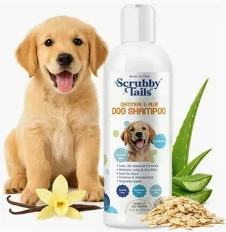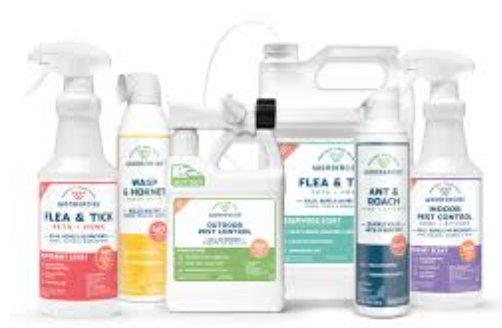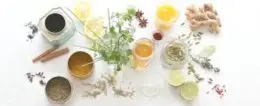Last Updated on 05/25/2025 by Kimberly
Dealing with fleas in such young puppies can be tricky, as their skin is sensitive and their immune systems are still developing. If you’re noticing your puppy scratching more than usual or spotting tiny insects on their fur, they might be dealing with a flea infestation. When it comes to identifying a flea problem, look out for signs such as excessive scratching, biting or licking at the fur, and flea dirt, which looks like small black specks on their skin. It’s important to combat 8 week old puppy fleas before they cause them health issues.
Taking a natural approach to manage fleas can be a good starting point. Options like a gentle bath with lukewarm water and a mild puppy-safe soap can help remove fleas from their coat. Be sure to thoroughly towel dry your puppy to prevent any chill. You might also use a fine-toothed comb to physically remove fleas and their eggs, focusing on the areas behind their ears and around their neck.
For those looking at medicinal options, ensure the product is specifically labeled as safe for young puppies, usually those at least 8 weeks old. There are sprays, topical applications, and oral treatments available that can target fleas effectively without harming your puppy. It’s wise to consult your vet before applying any treatment to ensure safety.
Preventing future flea infestations is all about keeping a clean and tidy environment. Regularly wash your puppy’s bedding and vacuum the areas where they spend most of their time to remove eggs and larvae. It’s also a good idea to schedule regular grooming sessions even at this young age to keep their coat healthy and check for any fleas.
By taking these steps, you can protect your little furry friend from the discomfort and potential health issues associated with fleas.
Soothing and Comforting Puppies with Flea Irritations
Noticing a young puppy struggling with flea irritation can be concerning. Signs include redness, swelling, or even small wounds due to excessive scratching and biting. Puppies may seem restless and might have difficulty sleeping due to the discomfort.
For easing itchiness, some natural methods can be remarkably effective. Oatmeal baths can provide relief, as oatmeal has soothing properties that help calm irritated skin. Simply grind plain oatmeal into a powder and mix it with water to form a paste, applying it gently to the affected areas. Be sure to rinse thoroughly and pat the puppy dry.
Aloe vera gel, sourced directly from the plant or purchased in its natural form, can be another excellent option. Rub a small amount gently onto your puppy’s irritated spots to help reduce inflammation and provide cooling relief. Always ensure that any product used is free from any harmful additives or chemicals.
For severe discomfort, there are safe topical treatments available. Always select those that are specifically formulated for puppies, as adult products can be too harsh. Consulting with a veterinarian is a smart move if irritations persist or worsen despite home care. They might recommend prescribed creams or medicated shampoos for more serious cases.
During these times, comfort your puppy with gentle petting and reassurance, as stress can amplify their discomfort. Providing a calm and soothing environment will help them feel secure and promote quicker recovery.
Long-term Strategies to Prevent Flea Infestations in Puppies
Keeping fleas at bay isn’t just a one-time effort, especially when it comes to taking care of an 8-week-old puppy. Consistent, proactive measures are key to creating a long-term barrier against these pesky parasites.
Start with the environment. Regularly vacuuming your home, particularly areas your puppy frequents, can significantly reduce the risk of fleas at home by removing eggs and larvae. Don’t forget to clean your puppy’s bedding and any favorite blankets or toys they regularly use. A flea perishing in these spots can quickly turn into a full-blown infestation if left unchecked.
Adopting a consistent grooming routine is also beneficial. Even at a young age, getting your puppy accustomed to regular baths and brushing can make a huge difference. Use a gentle puppy shampoo and a soft brush to remove any loose fur and potential parasites before they become a problem.
Nutrition plays a surprising role in flea prevention. Feeding your puppy a balanced diet rich in essential fatty acids can improve their skin health, creating a less inviting environment for fleas. Consider incorporating foods or supplements rich in omega-3 and omega-6 fatty acids, which can help build a stronger and healthier skin barrier. This better equips your puppy to naturally resist flea infestations.
Understanding the life cycle of fleas aids in prevention efforts. Fleas can lay hundreds of eggs, which can develop in the environment for weeks. By treating both your puppy and their surroundings, you effectively break the cycle and limit the chances of recurring issues. This comprehensive approach ensures your little friend stays happy and flea-free as they grow.
In Conclusion To How To Combat 8 Week Old Puppy Fleas:
Talking to your veterinarian if your puppy is severely infested with fleas is a very good idea. Puppies 8 weeks old and younger are more at risk than older dogs to have health complications when severely infested with fleas. Pups this young don’t have a strong immune system like older dogs, making it easier for them to become ill from fleas.
If you have any suggestions that you would like to share with others about your own experiences with fleas on puppies 8 weeks old or younger, please leave a comment below to help others. Do you have any questions about any of the information in this article or a question about fleas that isn’t addresed in this article, please leave a comment below so we can try to help you find answers.
Thank you for visiting Fleas B Gone 🙂






